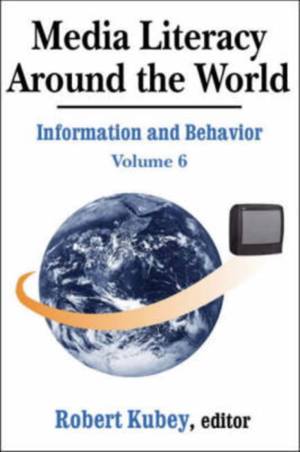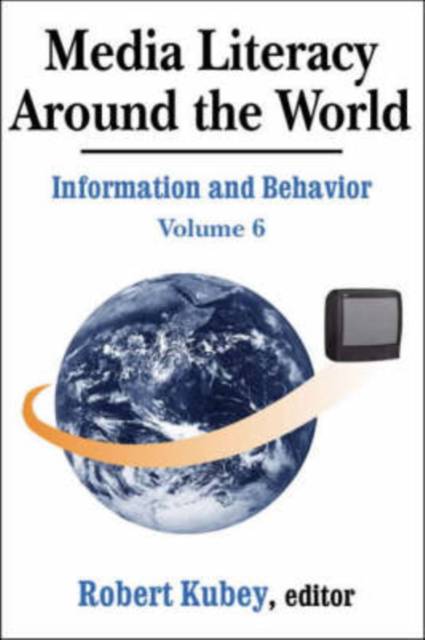
Door een staking bij bpost kan je online bestelling op dit moment iets langer onderweg zijn dan voorzien. Dringend iets nodig? Onze winkels ontvangen jou met open armen!
- Afhalen na 1 uur in een winkel met voorraad
- Gratis thuislevering in België vanaf € 30
- Ruim aanbod met 7 miljoen producten
Door een staking bij bpost kan je online bestelling op dit moment iets langer onderweg zijn dan voorzien. Dringend iets nodig? Onze winkels ontvangen jou met open armen!
- Afhalen na 1 uur in een winkel met voorraad
- Gratis thuislevering in België vanaf € 30
- Ruim aanbod met 7 miljoen producten
Zoeken
€ 59,45
+ 118 punten
Omschrijving
At the dawn of the twenty-first century, education about and through the media has become a worldwide phenomenon, and is playing an increasingly important role in educational reform. The theory and practice of media education have profited greatly from recent and intensive development and application of new information and telecommunications technologies. Consequently, the importance of media and information literacy is taking on an even greater urgency. With this in mind, the contributors to this volume survey what has taken place over the last decade in different parts of the world, examine the current state of theoretical, conceptual, and research development, and consider where media education is going and where it ought to go. With two-thirds of its 22 contributions coming from outside the United States, Media Literacy around the World is a genuine international effort, with many leading media and information educators in the world taking part. The work converts the notion of globalism from a slogan into a working hypothesis. The concerns in this volume are with literacy not just in computer technology, but as a broad concern of the educational process.
Specificaties
Betrokkenen
- Auteur(s):
- Uitgeverij:
Inhoud
- Aantal bladzijden:
- 512
- Taal:
- Engels
- Reeks:
- Reeksnummer:
- nr. 6
Eigenschappen
- Productcode (EAN):
- 9780765808547
- Verschijningsdatum:
- 30/04/2001
- Uitvoering:
- Paperback
- Formaat:
- Trade paperback (VS)
- Afmetingen:
- 162 mm x 229 mm
- Gewicht:
- 748 g

Alleen bij Standaard Boekhandel
+ 118 punten op je klantenkaart van Standaard Boekhandel
Beoordelingen
We publiceren alleen reviews die voldoen aan de voorwaarden voor reviews. Bekijk onze voorwaarden voor reviews.











